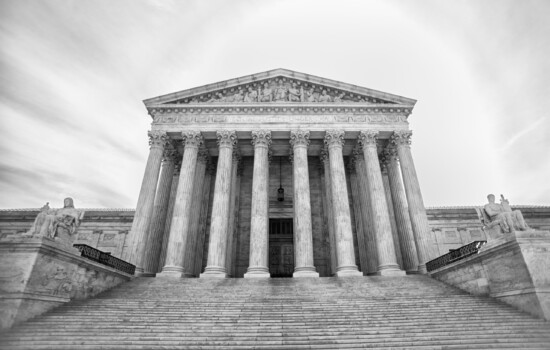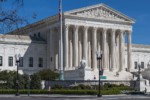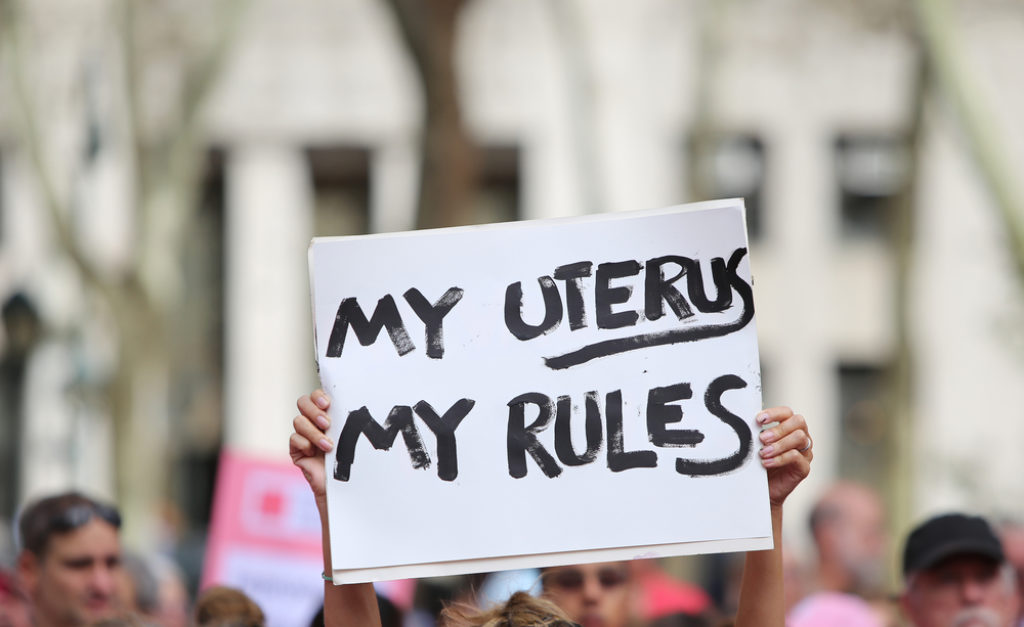Reproductive Rights
When it comes to a woman’s health care decisions, the only beliefs that matter are hers. Lawmakers should not use their personal religious beliefs to dictate women’s access to reproductive health care.

When it comes to government policy, decisions must be made in a religiously-neutral way based on science and evidence.
Abortion
In the landmark case Roe v. Wade, the U.S. Supreme Court recognized that the U.S. Constitution protects a person’s right to make their own medical decisions, including the decision to have an abortion. Therefore, a state may not ban abortion prior to viability. In the years following that landmark ruling, in decisions including Casey v. Planned Parenthood of Southeastern Pennsylvania, the Supreme Court has never wavered from this principle. Despite these landmark cases, a myriad of state-level abortion restrictions have been enacted at the state level.
Anti-choice lawmakers have passed a wide variety of laws that impose barriers to abortion care. These include policies that require patients to undergo counseling, mandatory and arbitrary waiting periods, and laws allowing doctors to refuse to provide abortion care. In 2018, Mississippi enacted the earliest abortion ban in the country, prohibiting abortion at just 15 weeks, before many women even know they’re pregnant.
Laws and regulations regarding pregnancy and abortion should be based on scientifically sound medical research, not sectarian religious beliefs.
Crisis Pregnancy Centers
The terms “crisis pregnancy center” (CPC) and “pregnancy resource center” have been used to euphemize brick-and-mortar facilities or mobile units that combine the provision of some pregnancy resources with attempts to prevent women from accessing comprehensive reproductive care. Many of these
centers and mobile units provide false and misleading information about the effects of abortion and many states have no licensing or medical service requirements for CPCs. Mobile units often set up in public parking lots near clinics that provide abortion services and activists attempt to persuade persons headed to the clinic to come to the mobile unit instead with promises of free care.
Women must have accurate information about all their pregnancy options, including abortion care. Lawmakers should take steps to curb the ability of CPCs to deceive women by marketing themselves as legitimate healthcare providers.
Health Care Provider Refusal Laws
Following the Supreme Court’s 1973 decision in Roe v. Wade, many states and the federal government enacted health care provider refusal laws (“Refusal Laws”). These Refusal Laws, also known as “conscience clauses”, allow medical professionals to refuse participation in abortion-related services. Congress passed the Public Health Service Act (“Church Amendment”), which permits any health care facility or provider receiving federal funds to refuse to provide abortion services and sterilization services if doing so violated the provider’s religious or moral beliefs. The District of Columbia and 45 states have statutes allowing medical professionals to refuse to provide abortion services; 18 states allow health care providers to refuse sterilization procedures, such as tubal ligation and vasectomies. Refusal Laws have also been expanded to include dispensing of prescriptions and to pharmacists themselves. At least 12 states have laws allowing a pharmacist to refuse to fill lawful prescriptions for drugs that the pharmacist considers “abortifacient,” including emergency contraception prescriptions.
One in six American patients were cared for at a Catholic-based hospital. As Catholic hospitals increase in number through mergers across the country, the use of religious beliefs and directives to determine patient care is increasing. The U.S. Conference of Catholic Bishops uses the Ethical and Religious Directives for Catholic Health Care Services to control how Catholic-based health care providers make medical decisions for all patients, even those who are not Catholic. Patients who unwittingly choose, or have no choice due to insurance or location, a Catholic-affiliated doctor or hospital may not be told of certain medications, treatments, or services if they conflict with Catholic teachings or beliefs.
Lawmakers should overturn existing laws and oppose any proposed legislation that would allow medical professionals to deny patients abortion and sterilization procedures (or other services),
and/or enable pharmacists, based on their personal religious beliefs, to refuse to fill lawful prescriptions for contraception, including emergency contraception.
Religious Exemptions From Contraceptive Coverage
Under the Affordable Care Act, the Department of Health and Human Services (HHS) provides an exemption from providing contraceptive care that includes all nonprofit organizations that claim a tax exemption as a “religious employer.” In the 2014 Burwell v. Hobby Lobby case, the Supreme Court expanded that exemption to include closely held for-profit companies if the owners object to the contraceptive coverage on religious grounds.
The employees of these companies and organizations may still receive contraceptive coverage through a third-party once the employers notify HHS of their intent not to provide coverage via an email or a one-page form. Some Catholic groups challenged this notice requirement, claiming that under the Religious Freedom Restoration Act, their religious exercise was burdened. The appeals courts split on the issue. However, in 2016 in Zubik v. Burwell the Supreme Court ordered that the government and objecting parties to reach an accommodation that satisfies religious exercise and ensures employees receive full and equal health coverage, including the contraceptive coverage.
The contraceptive coverage requirement of the Affordable Care Act is intended to serve the compelling public health and gender equity goals and is in no way targeted at religion or religious practices, keeping in line with First Amendment jurisprudence.
Related News

Heretic on The Hill: Knowing It When You See It
In 1964 Supreme Court Justice Potter Stewart wrote an opinion concerning a film the Ohio courts had deemed to be obscene. On the question of what exactly counts as pornography he said it was difficult…

From the Intern Desk: “God is in the Gallery”
August 11, 2022
Heretic on the Hill: “I Do” Support Marriage Equality
August 6, 2022
Heretic on the Hill: In the Court of Public Opinion
July 9, 2022
Heretic on the Hill: Phoning it in on Virtual Lobby Day
June 25, 2022Related Actions




